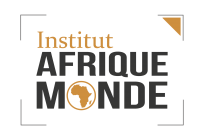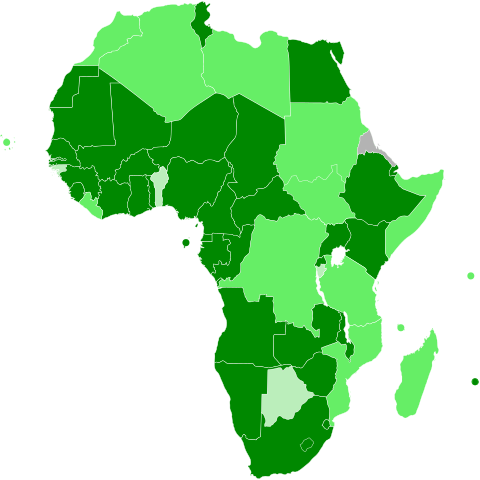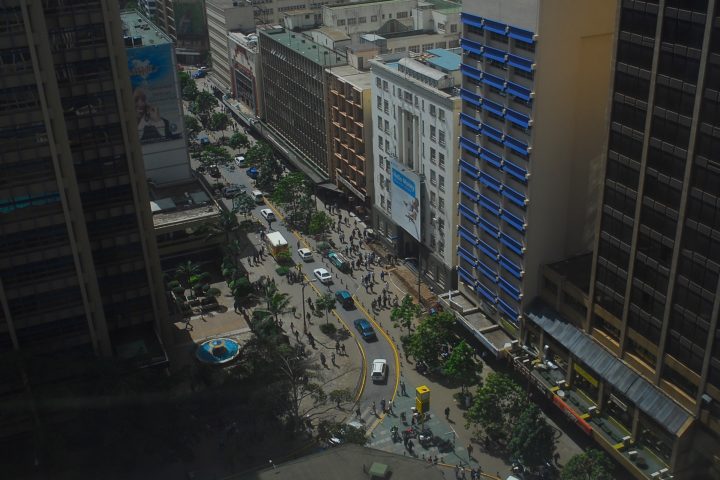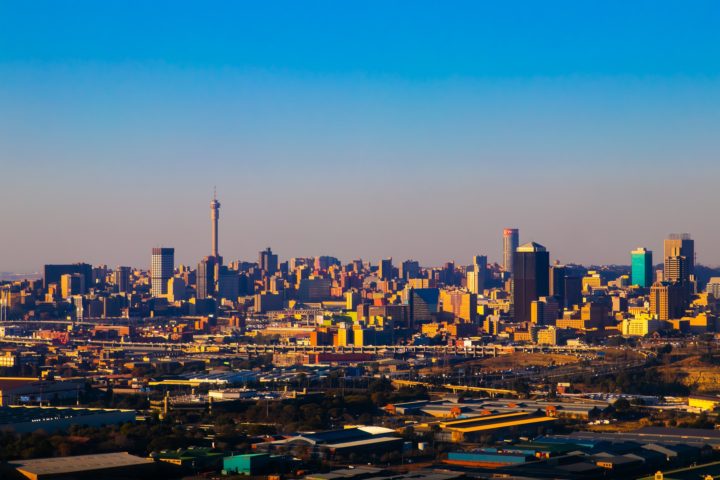This first Letter that we are publishing is intended to constitute a workshop for reflection on religious pluralism today in Africa.
Certainly the recent demonstrations on the continent, following the jihadist attacks in Paris a month ago, underline the urgency of the situation. But it has already been several decades since the signs of tension that work the religious aspirations of African societies appeared: “revolutions” in the Arab world, aimed at redefining the ummah (Muslim mythological community); restoration of traditional religions in Black Africa; inculturation of Christianity of Western origin, following the Vatican II Council; recent introduction of different Buddhist schools south of the Sahara…
At the end of May in Cotonou (Benin), Albert Tévoedjré, sponsor of the IAM, will open a three-year project on education for peace and development through intercultural and inter-religious dialogue taking into account these four spiritual worlds. It is in this same spirit that we therefore wished to set up a small workshop to deepen the scope and challenges of the various “spiritual and religious offers” in the context of the 21st century, on the threshold of the 3rd millennium of the Christian era.
In two months’ time, in April, we would like to bring together all those who would like to pursue the company for a while. In the meantime, we will publish weekly weekly posts that will enable us to lay the foundations for reflection and dialogue.
2015: the new year begins after 2014, which leaves little room for optimism in public opinion, whether in France, Europe or more generally in the world, about the situation of the various societies that inhabit the planet. At all levels, each of them faces challenges – demographic, economic, financial, social, social, political, cultural, religious, international – that rather create a pessimistic atmosphere as to the prospects for conflict resolution that are their expressions. The Paris attacks and their aftermath in Africa at the beginning of this year are obviously not an improvement.
From the most concrete base where the most topical issues of the day arise – the migration of people leaving their rural territories, the insecurity of those living in urban neighbourhoods, unemployment in many economies, the increase in poverty for the greatest number in most nations… – to the top of international society dealing with public conflicts or more subtle tensions throughout the world, everywhere seem to prevail a spirit, an attitude and a behaviour marked mainly by the doubt of being able to display and consolidate convictions, to affirm one’s faith, and to build peace… while at the same time a need and a search for “spirituality” are becoming increasingly apparent.
Even more than a general crisis affecting all the external and material manifestations of the coexistence of human communities, it is indeed a crisis of morale, and of the internal and “spiritual” energies of these societies and their actors that our time is confronted and confronted: 70 years after the end of the Second World War, 50 years after the Second Vatican Council in the Christian world, 45 years after the cultural revolution in the West, 25 years after the collapse of the Berlin Wall and, in Beijing, the demonstrations in Tien An Men Square… Everything seems to indicate that the whole world has entered a period of global deconstruction and reconstruction of the world whose stakes are so high that no actor can claim to master its course.
While a few share this diagnosis, they are only a minority. For public opinion, in general, it is better to be content to live from day to day (each day is enough), without worrying about wanting, beyond the immediate surface of things, to diagnose in depth the events whatever they are, those “moments” that are only passing, and their actors too… Some, however, sensitive to the appearance of precariousness that the turn of events takes, are, however, adopting tense attitudes of rehabilitating what were previously stable, secure and lasting lairs of their order – and the “sacred” universe of religions still offers the possibility of finding salutary refuges from which it would seem possible to radically denounce the profanity of the wanderings of the “world” going to its destruction… (Daech, Boko Haram, and the various manifestations of an anti-Westernism that has become fairly widespread…).
It is therefore within and at the centre of this very complex world of multicultural, multi-religious and multi-civilisational representations that we must reflect today at new costs, awakening our consciences to what exists and what would like to be, seeking the Truth beyond appearances, to acquire the Wisdom of what must really become for everyone. Now there is only one commandment that leads us to this Wisdom of Life: To love “God” that in truth no one has ever seen and whose purpose, too, is unknown; to love ourselves by trusting and believing in ourselves; to love others – our “enemies” as our “neighbours”… Let us then propose to undertake, with Faith, an investigation of the state of things present and to discern the spiritual paths by which a possible future of Love, Wisdom and Peace would gradually be revealed!
The originality of our Africa World Institute is to study the spirit in which the continent has evolved up to now, is evolving now and can evolve in the future, the ongoing metamorphoses and their spiritual, social and political challenges, against the backdrop of an international, intercultural and interfaith society that is certainly chaotic but where everyone is seeking, for all, the meaning of Man, of Society where it is necessary to live together, despite everything… and of their History. Charles Vandame, a Jesuit friend, after fifty years spent in Cameroon and Chad (he was bishop), publishing Fifty years of the life of the Catholic Church in Chad – Tests, Hope (L’Harmattan) asks himself: “Have Catholic missionaries respected traditional African cultures and religions? How does the Catholic Church manage its relations with Protestant churches and with the Muslim faith? How does the encounter between African culture, marked by a very strong community spirit, and modern culture, marked by extreme individualism, take place? In this clash of cultures, are not the Christians of Chad, and with them their compatriots, losing their identity and the values they received from their ancestors? How was the Catholic Church founded? Why did it develop so quickly? In what spirit has it devoted itself to educating young people, promoting health and developing the rural world? Why some failures? Can the rites of Christian initiation (baptism in particular) and those of traditional youth initiation be compatible?” CERAP had the opportunity to recruit in 2011 a former Ivorian Catholic, who has switched to Buddhism… It is in this spirit of broad openness that I propose to revisit the past, to reflect on the human resources formed today by all kinds of beliefs, and to evaluate together the spiritual sensitivities, intellectual perceptions, societal behaviours and political enterprises that already make and will make societies and their history tomorrow – to meet the challenge of living together despite everything, increasingly global !
To complete our reflection as of now, I am attaching the annex of someone other than myself, an extract from the presentation that our friend Albert Tévoedjré made of his African Initiative on Education for Peace and Development through Interreligious and Intercultural Dialogue.
Denis Maugenest
Download the weekly ticket of February 9 in pdf format.
Do you wish to continue the reflection with the IAM, anxious to contribute to the emergence of African civilization in the contemporary world, and to contribute to the work of the “Religious Pluralism” workshop ? Contact us here.



